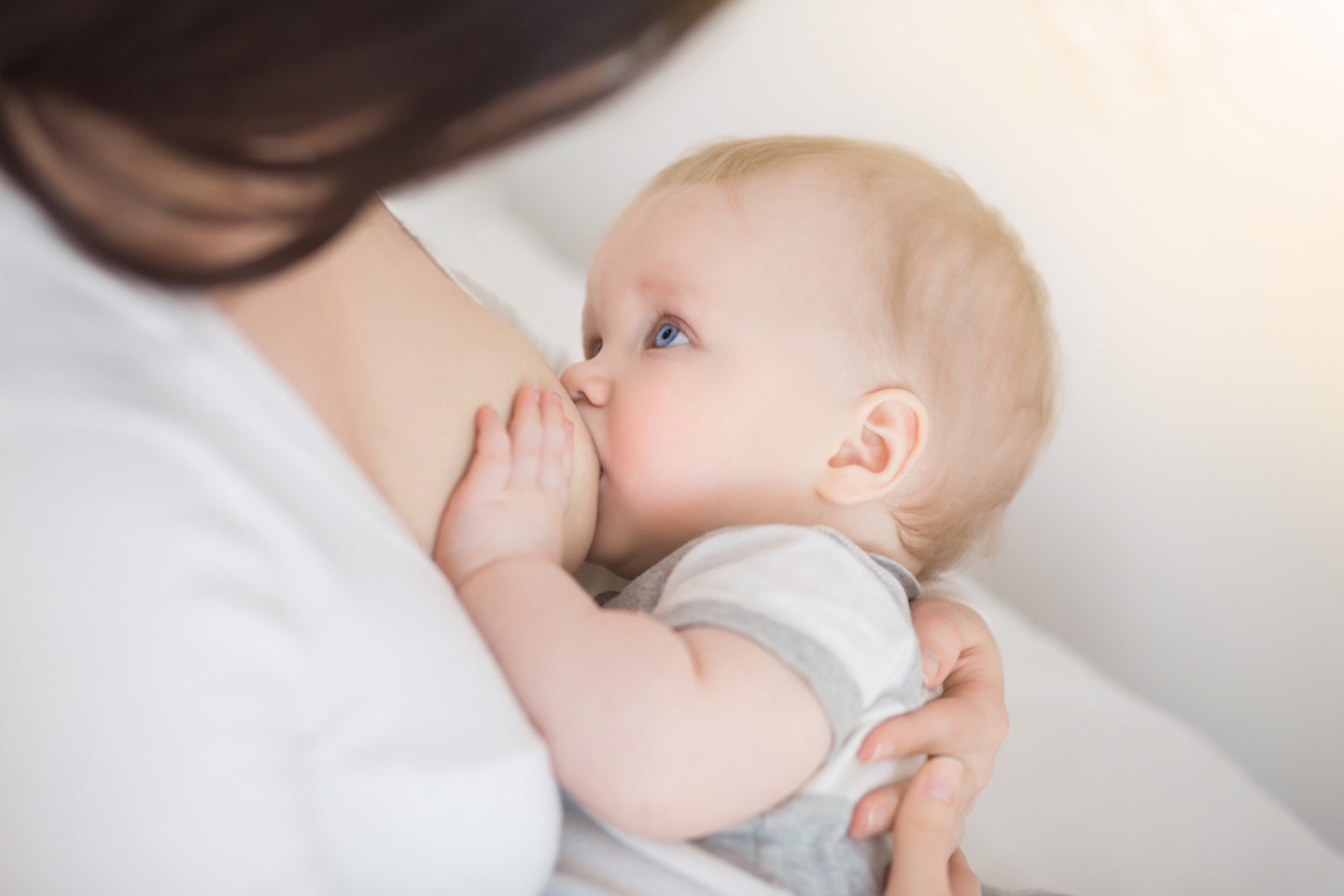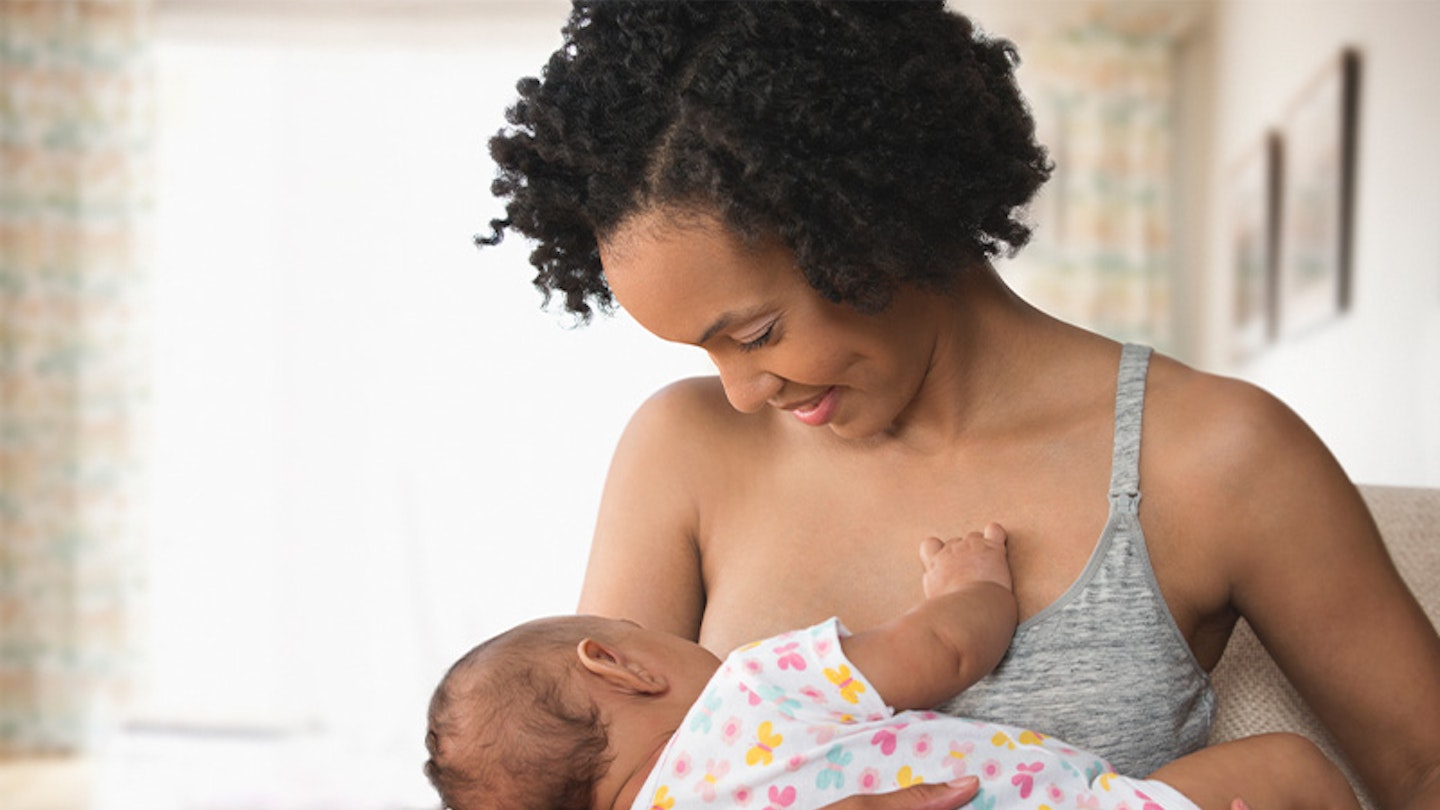Whether you're hoping to expand your family or you're not wanting to get pregnant just yet, it's important to know that breastfeeding does affect your fertility.
But can you get pregnant while breastfeeding? In short, the simple answer is yes, you can get pregnant while breastfeeding. However, some mums might experience delayed fertility during breastfeeding.
How does breastfeeding effect fertility?
Any new mum will know how much babies are on and off the boob, feeding very regularly, especially in those early months. According to baby and parenting expert Rachel Fitz-Desorgher, this irregular feeding pattern is just what causes new mums to be less fertile.
'This frequent and somewhat erratic-seeming behaviour keeps certain hormones very high and these stop us ovulating. It’s nature’s way of ensuring that we can give all our attention to our baby until it is a bit more able to cope without us before the next one comes along. It ensures the baby’s survival.'
When we reduce the amount of time baby feeds or suckles for, our hormone levels are affected and this, potentially, causes us to ovulate.

'People that tell you to jiggle the baby to keep them sucking or to take them off when they’re no longer actively drinking but simply faffing and dozing (they’re just using you like a dummy!) do not understand that this is the way babies are meant to behave at the boob, and interfering is just that - interfering,' says Rachel.
In the early days, giving even one bottle could be enough to reduce our suckling hormones and women who exclusively formula feed risk pregnancy if they have unprotected sex from as early as 3 weeks after birth! And, although most of you are probably wincing at the thought of having sex so soon after pushing a whole human being into the world, some women genuinely do feel able to enjoy sex that soon.
What if I'm trying to get pregnant while breastfeeding?
If you are hoping to get pregnant again soon after you've had your baby, a [dummy]{href='https://www.motherandbaby.com/baby-and-toddler/toddler/dummies-pacifiers-newborn-pros' } could be what you need.
"Using a dummy or soother quite simply reduces the time your baby spends boobling and that, in turn, reduces your hormones and makes pregnancy much more likely. I have known numerous women caught out this way and been astonished when I broke the news to them that, if they use one type of rubber (a dummy), they’d better use another (a condom)!"
The most obvious time when suckling reduces is during the weaning stage. Sometime around six months, most babies start to show readiness to explore family foods and, as their food intake gradually increases month by month, suckling times tend to decrease. At whatever age you decide to start offering family foods, it is a good idea to talk to your partner about contraception, and don’t wait until it’s too late - talk before you start weaning.
For the vast majority of women, whilst they exclusively suckle, their periods don’t happen. For some women, however, exclusive suckling doesn’t stop them having periods and it is possible that they are still ovulating and could get pregnant. Any amount of bleeding, even spotting, should alert you to the possibility that you’re becoming fertile again and you should take precautions to avoid getting pregnant if it matters to you.
So, can you still get pregnant if you’re breastfeeding?
Using breastfeeding as contraception, also known as the 'lactational amenorrhoea method' is 98 per cent effective so long as your baby is less than six months old, you have not experienced any vaginal bleeding since the birth, and you are breastfeeding your baby exclusively or almost exclusively', says GP Dr Sarah Brewer. However, the simple answer is yes, you can get pregnant while you’re breastfeeding, but the chances are much lower.
Dr Brewer explains further: ‘Hormone changes triggered by breastfeeding help to suppress ovulation.'
‘If you wish to rely on LAM, it’s important to be properly instructed in the method to prevent accidental pregnancies, so talk to your GP.’ Worryingly, some women even choose to use breastfeeding as their only contraceptive method.
The number of factors involved however make the LAM method an unreliable form of contraceptive, so should be used only when having another pregnancy is not a problem. If it is essential that you don’t fall pregnant, it is recommended to use another form of additional contraception. Alternatively, if you are interested in getting pregnant again soon after giving birth, find out here how soon you can welcome baby number two.
How to use breastfeeding as a contraceptive method:
If you want to reduce your chances of getting pregnant and don’t want to use contraceptives, you can follow the below guidelines to utilise the LAM method:
• Exclusively suckle your baby.
• Don’t give bottles.
• Don’t use a dummy.
• Don’t try and space breastfeeds out or limit your baby’s time at the breast by taking them off as soon as you hear the glugging stop - it’s the natural glug, faff, doze, glug, faff, doze rhythm which keeps your hormones high and your chances of getting pregnancy low.
And remember, you could become fertile if:
• Your baby starts to suckle less frequently, especially overnight.
• You start introducing family foods (weaning).
• You start to experience vaginal bleeding, no matter how minimal.
• You stop breastfeeding
Meet the expert
Rachel Fitz-D is a baby and parenting expert and mother’s mentor. Not only does she has four grown-up sons and two grandchildren, she has over 40 years experience as a midwife. She's an expert in the field of breastfeeding and is also the author of Your Baby Skin to Skin which you can buy on Amazon, now.
